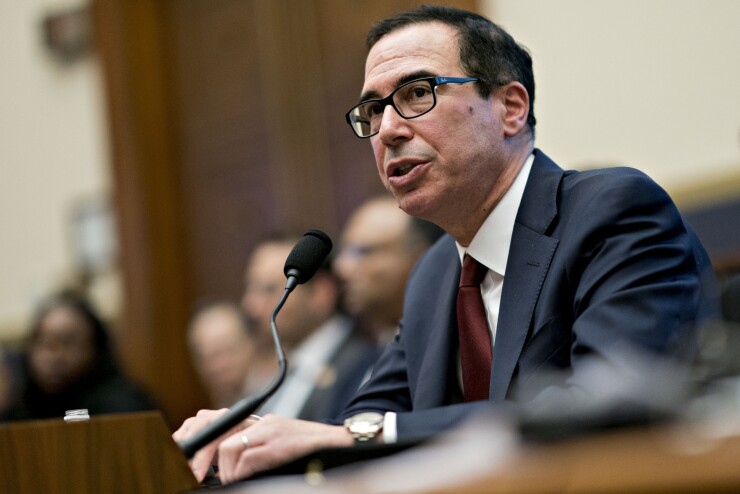The Internal Revenue Service and the Treasury Department released guidance Wednesday on how taxpayers can
The guidance permits all individual and other non-corporate tax filers to defer up to $1 million of federal income tax (including self-employment tax) payments due on April 15, 2020, until July 15, 2020, without incurring penalties or interest.
It specifically notes that the current relief does not change any other payment or filing deadlines.
"No extension is provided in this notice for the payment or deposit of any other type of federal tax, or for the filing of any tax return or information return," it states.
The guidance also gives corporate taxpayers a similar deferment of up to $10 million of federal income tax payments that would be due on April 15, 2020, until July 15, 2020, without penalties or interest. The guidance doesn’t change the April 15 filing deadline, but it allows most taxpayers to avoid interest and penalties on their tax payments until July 15.
“Americans should file their tax returns by April 15 because many will receive a refund. Those filing will be able to take advantage of their refunds sooner,” said Treasury Secretary Steven Mnuchin (pictured) in a statement Wednesday. “This deferment allows those who owe a payment to the IRS to defer the payment until July 15 without interest or penalties. Treasury and IRS are ensuring that hard-working Americans and businesses have additional liquidity for the next several months.”

The guidance is expected to result in approximately $300 billion of additional liquidity in the economy in the near term. The IRS and the Treasury plan to issue more guidance as needed and continue working with Congress, on a bipartisan basis, on legislation to provide further relief to taxpayers.
The formal guidance is available in
Barry Melancon, president and CEO of the American Institute of CPAs, believes the IRS notice doesn’t go far enough.
“On Monday, we learned that the administration is allowing certain taxpayers to delay tax payments for 90 days and is providing interest and penalty relief, and today it released its formal notice,” Melancon said in a statement Wednesday. “Unfortunately, this important payment relief does not apply to the filing of tax returns. The concern and confusion related to coronavirus is causing cities across the country to shut businesses down, and Treasury’s recent decisions do not reflect the real-world difficulties tax practitioners and their clients are experiencing.”





